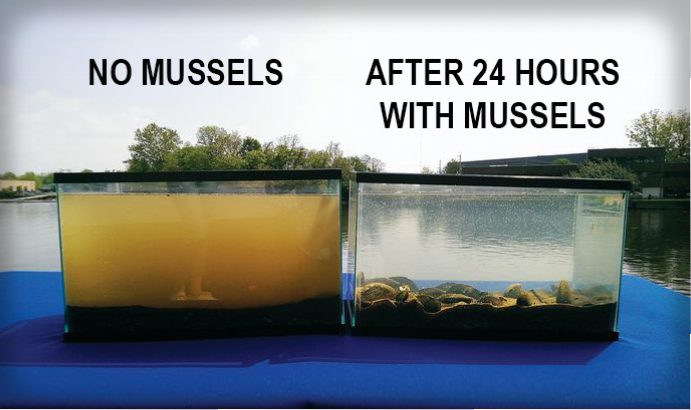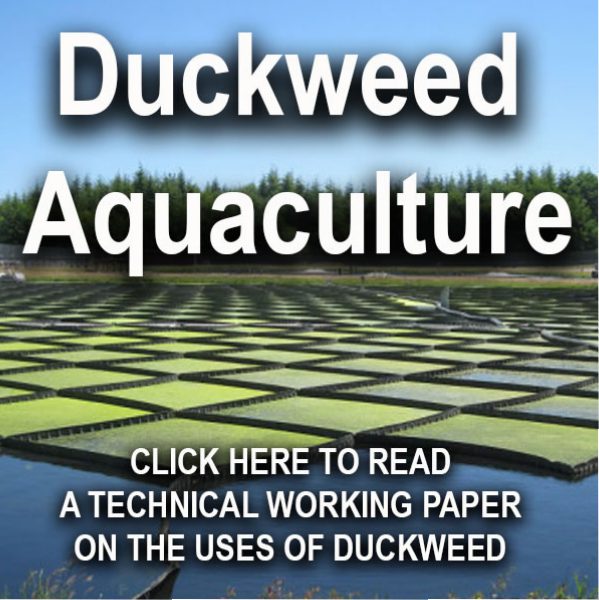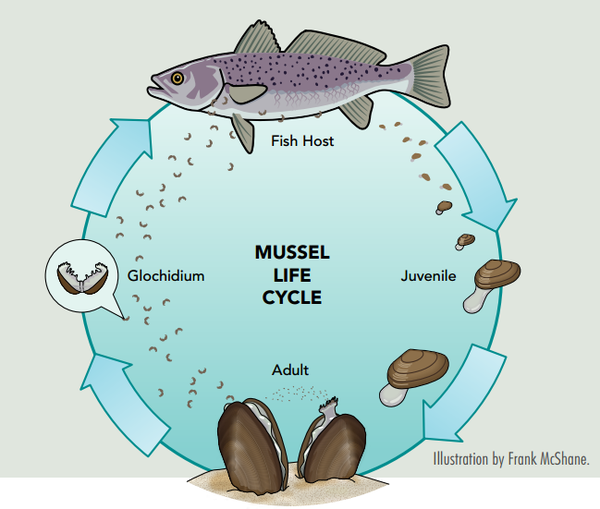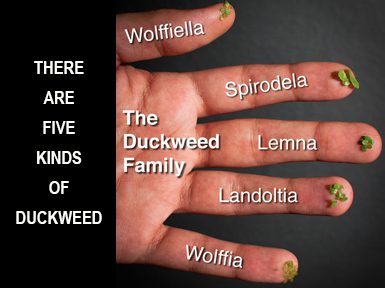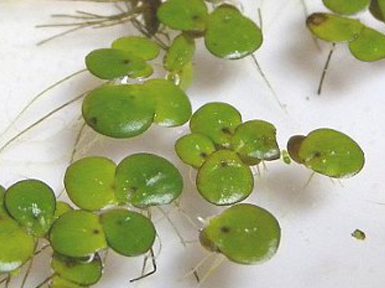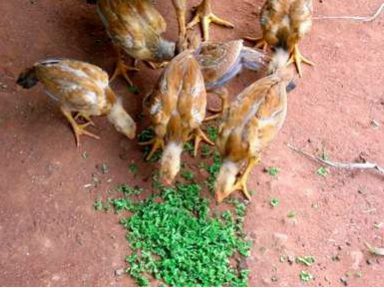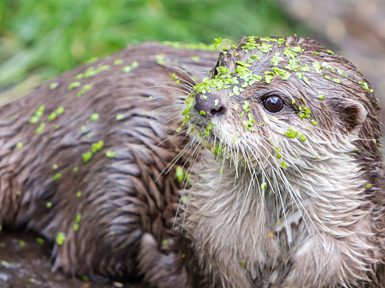
EXPLANATION OF PROJECT:
Many species of freshwater mussels have died in the estuary due to pollution, usually excess phosphates and nitrates in the water. The loss of these mollusks, which filter the water, up to 20 gallons a day per mussel, has led to a massive loss of water clarity. The loss of clarity has affected bottom vegetation resulting in the further decimation of additional species due to the loss of habitat. As a result some areas of the estuary have become devoid of life entirely.
Dave Rickards, the founder of Birdsong, has been addressing the issue of water clarity since 1999. He has worked with Delaware’s Department of Natural Resources and more specifically with the Inland Bays tributary advisory group. Birdsong Gardens has been researching Duckweed, in partnership with Elcriton, since 2012. Duckweed has proven to remove nitrates and phosphates from the water. This purification duckweed provides would allow fish and mussels to move succesfully back into the barren areas which would in turn begin to restore the once pristine eco-system of the Delaware estuary. Birdsong Gardens, having obtained their non-profit organization status in 2016 which allows them to apply for grant money, has developed a three prong solution to the estuary’s pollution involving duckweed, fish and freshwater mussels.
In order to re-establish mussels, it is necessary to:
- Rid the water of excess pollutants using Duckweed
- Create an acceptable environment for fish which play a necessary part of the lifecycle of the mussel
- Purchase native freshwater mussels so they can slowly repopulate the estuary once the habitat is suitable
- Monitor the mussels in their re-established habitat to ensure optimal health and longevity
Birdsong Gardens has:
- Already performed research on Duckweed’s ability to remove pollutants in partnership with Elcriton Inc and has determined that it can eliminate Nitrates and Phosphates from the water in a contained environment
- Is currently setting up test sites in contained areas within the natural setting of the estuary to further determine Duckweed’s ability to remove these contaminants
- Proposed to buy mussels from the Academy of Natural Sciences of Drexel University and hopefully begin to replenish the dwindling fresh water mussel population. See an overview of Drexel University’s research here: http://exelmagazine.org/article/the-underdogs/
FUTURE PLANS OF THE DELAWARE ESTUARY WATER CLARITY PROJECT:
Birdsong Gardens hopes that in the future the proposed nature center which educates the public about the monarch butterfly may be later expanded to house an explanation of The Delaware Estuary Water Clarity Project. This exhibit would illustrate how different aspects of the eco-system work together to create balance and bio-diversity. Conversely, it would also illustrate what happens when one part of that delicate balance is affected. However most import of all, ultimately, it would illustrate how if we act as guardians and stewards of the environment we have been blessed with, we can restore balance in our eco-system and pass on the beauty and majesty of the natural world to our children.
EXPLANATION OF PROJECT:
Many species of freshwater mussels have died in the estuary due to pollution, usually excess phosphates and nitrates in the water. The loss of these mollusks, which filter the water, up to 20 gallons a day per mussel, has led to a massive loss of water clarity. The loss of clarity has affected bottom vegetation resulting in the further decimation of additional species due to the loss of habitat. As a result some areas of the estuary have become devoid of life entirely.
Dave Rickards, the founder of Birdsong, has been addressing the issue of water clarity since 1999. He has worked with Delaware’s Department of Natural Resources and more specifically with the Inland Bays tributary advisory group. Birdsong Gardens has been researching Duckweed, in partnership with Elcriton, since 2012. Duckweed has proven to remove nitrates and phosphates from the water. This purification duckweed provides would allow fish and mussels to move succesfully back into the barren areas which would in turn begin to restore the once pristine eco-system of the Delaware estuary. Birdsong Gardens, having obtained their non-profit organization status in 2016 which allows them to apply for grant money, has developed a three prong solution to the estuary’s pollution involving duckweed, fish and freshwater mussels.
In order to re-establish mussels, it is necessary to:
- Rid the water of excess pollutants using Duckweed
- Create an acceptable environment for fish which play a necessary part of the lifecycle of the mussel
- Purchase native freshwater mussels so they can slowly repopulate the estuary once the habitat is suitable
- Monitor the mussels in their re-established habitat to ensure optimal health and longevity
Birdsong Gardens has:
- Already performed research on Duckweed’s ability to remove pollutants in partnership with Elcriton Inc and has determined that it can eliminate Nitrates and Phosphates from the water in a contained environment
- Is currently setting up test sites in contained areas within the natural setting of the estuary to further determine Duckweed’s ability to remove these contaminants
- Proposed to buy mussels from the Academy of Natural Sciences of Drexel University and hopefully begin to replenish the dwindling fresh water mussel population. See an overview of Drexel University’s research here: http://exelmagazine.org/article/the-underdogs/
FUTURE PLANS:
Birdsong Gardens hopes that in the future the proposed nature center which educates the public about the monarch butterfly may be later expanded to house an explanation of The Delaware Estuary Water Clarity Project. This exhibit would illustrate how different aspects of the eco-system work together to create balance and bio-diversity. Conversely, it would also illustrate what happens when one part of that delicate balance is affected. However most import of all, ultimately, it would illustrate how if we act as guardians and stewards of the environment we have been blessed with, we can restore balance in our eco-system and pass on the beauty and majesty of the natural world to our children.

